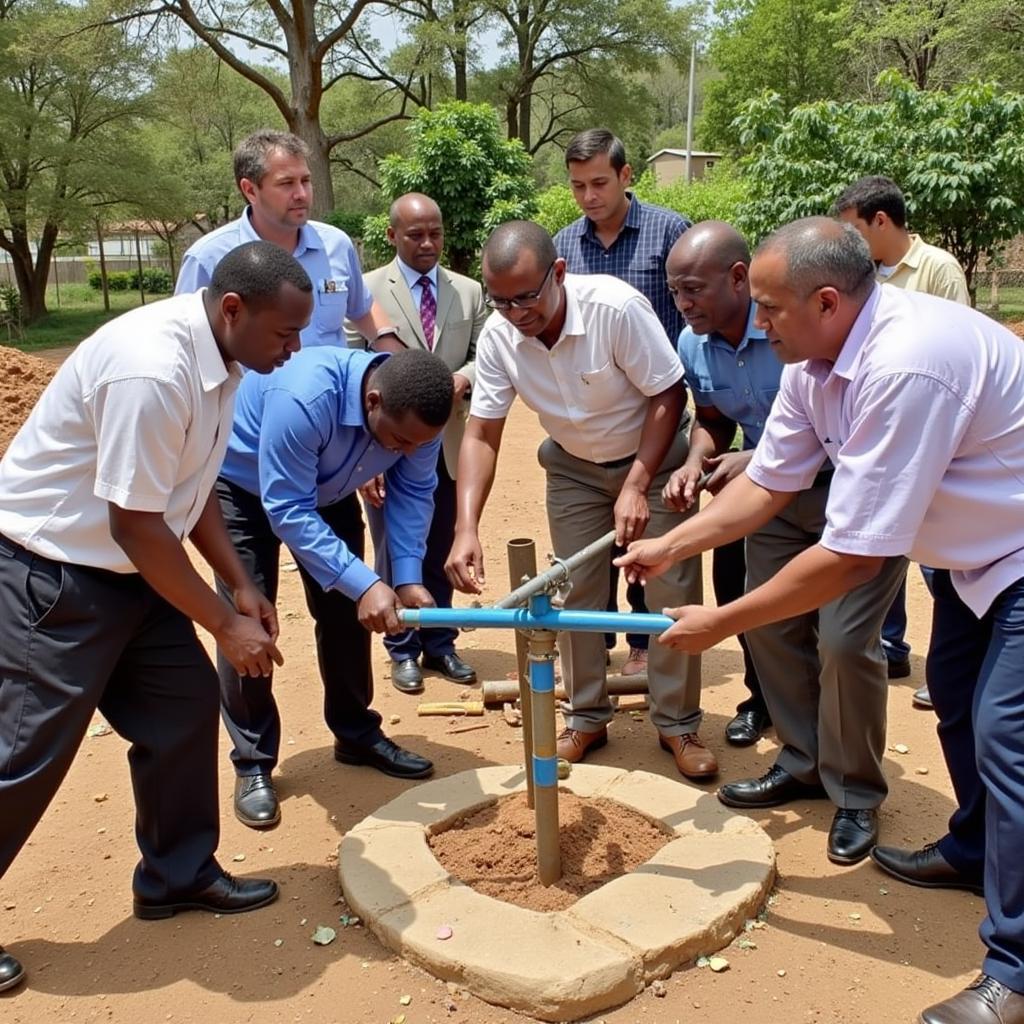Autonomous bodies in Pakistan play a crucial role in various sectors, contributing to governance, development, and service delivery. These entities operate independently of direct government control, possessing their own management structures and financial autonomy. Understanding their functions, importance, and challenges is crucial for comprehending Pakistan’s administrative landscape.
What are Autonomous Bodies in Pakistan and Why are They Important?
Autonomous bodies are organizations established by the government through a specific charter or act, granted a degree of independence in their operations. This autonomy allows them to function more efficiently, free from bureaucratic hurdles that can often hinder government departments. They are tasked with specialized functions, ranging from regulating specific industries to providing essential services. Their importance lies in their ability to address niche areas requiring expertise and focused attention.
Key Functions and Responsibilities of Autonomous Bodies
These organizations are responsible for a wide range of tasks. Some focus on regulating industries like telecommunications or energy, ensuring fair competition and consumer protection. Others provide essential services such as healthcare, education, or research. Their specialized nature allows them to develop expertise and tailor their services to specific needs. For example, the Pakistan Telecommunication Authority (PTA) regulates the telecom sector, while the Higher Education Commission (HEC) oversees higher education institutions.
Different Types of Autonomous Bodies in Pakistan
Pakistan’s autonomous bodies can be categorized based on their function, sector, and level of autonomy. Some are purely regulatory, while others are service-oriented. Some operate at the federal level, while others function within provincial jurisdictions. Understanding this diversity is essential for analyzing their overall impact.
Navigating the Legal Framework Governing Autonomous Bodies
The legal framework governing these bodies is complex, often defined by individual charters or acts that outline their mandate, powers, and responsibilities. This legal structure provides the foundation for their operations and ensures accountability. However, navigating this legal landscape can be challenging, particularly for those seeking information or redressal.
 Officials of an autonomous body in Pakistan in a meeting
Officials of an autonomous body in Pakistan in a meeting
Challenges and Opportunities for Autonomous Bodies
Despite their importance, autonomous bodies face several challenges, including funding constraints, political interference, and capacity building. Ensuring their effectiveness requires addressing these issues and strengthening their operational capabilities. There are also opportunities to enhance transparency and accountability, further optimizing their contribution to national development. Seeking deputation jobs in Pakistan within these organizations can be a rewarding career path. Likewise, understanding the landscape of security agencies in Pakistan is crucial for grasping the broader administrative structure.
Ensuring Transparency and Accountability within Autonomous Bodies
Transparency and accountability are crucial for the effective functioning of these bodies. Implementing robust mechanisms for oversight and public access to information can enhance public trust and ensure their operations align with public interest. This is an ongoing process, with continuous efforts to improve transparency and accountability practices.
How Autonomous Bodies Contribute to Pakistan’s Development
Autonomous bodies contribute significantly to Pakistan’s development by focusing on specific sectors and providing specialized services. Their ability to operate independently allows them to be more responsive to changing needs and adapt quickly to new challenges. This flexibility is crucial for fostering innovation and driving progress.
 An autonomous body in Pakistan working on a community development project
An autonomous body in Pakistan working on a community development project
Conclusion: The Future of Autonomous Bodies in Pakistan
Autonomous bodies remain a vital part of Pakistan’s administrative structure. Their continued development and strengthening are crucial for achieving national development goals. Addressing the challenges they face and fostering transparency and accountability will ensure their effectiveness and enhance their contribution to the nation’s progress. Understanding their role and functioning is essential for anyone interested in Pakistan’s governance and development landscape. The future success of these bodies hinges on ongoing reforms, capacity building, and a commitment to public service.
FAQ about Autonomous Bodies in Pakistan
- What is the main purpose of an autonomous body?
- How are autonomous bodies funded?
- How are members of autonomous bodies appointed?
- What is the difference between an autonomous body and a government department?
- How can I access information about the activities of an autonomous body?
- What is the role of the government in overseeing autonomous bodies?
- How can I file a complaint against an autonomous body?
Need help? Contact us 24/7: Phone: +923337849799, Email: news.pakit@gmail.com, or visit us at Dera Ghazi Khan Rd, Rakhni, Barkhan, Balochistan, Pakistan.